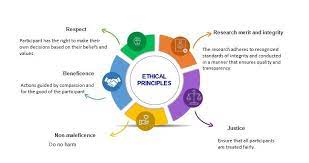The Insights of Political Philosophy
Political philosophy delves into the fundamental questions surrounding governance, power, justice, and the relationships between individuals and society. Through centuries of contemplation and debate, political philosophers have offered profound insights that continue to shape our understanding of politics and society.
The Nature of Power
One key insight of political philosophy is the examination of power – its sources, its manifestations, and its implications. Philosophers like Niccolò Machiavelli and Thomas Hobbes have explored the nature of power in relation to governance, highlighting the complexities and challenges inherent in wielding authority.
Justice and Equality
Political philosophers such as John Rawls and Immanuel Kant have focused on the concepts of justice and equality. They have proposed theories that seek to establish fair principles for distributing resources, opportunities, and rights within society. These insights continue to inform debates on social justice and human rights.
The Social Contract
The idea of a social contract, popularised by thinkers like Jean-Jacques Rousseau and John Locke, offers insights into the relationship between individuals and their government. It posits that individuals consent to be governed in exchange for protection of their rights and interests. This concept remains central to discussions on legitimacy and authority.
Ethics in Politics
Political philosophy also explores the ethical dimensions of political decision-making. Thinkers such as Aristotle and John Stuart Mill have examined the moral responsibilities of leaders, the role of virtues in governance, and the ethical dilemmas that arise in political life. These insights prompt reflection on how values shape political action.
Conclusion
Political philosophy offers a rich tapestry of insights that deepen our understanding of politics, society, and human nature. By engaging with these philosophical perspectives, we gain valuable tools for critically analysing political systems, advocating for justice, and envisioning a more equitable world.
Nine Essential Tips for Gaining Insights into Political Philosophy
- Study the works of influential political philosophers such as Plato, Aristotle, Machiavelli, Hobbes, Locke, Rousseau, Marx, and Rawls.
- Understand the key concepts in political philosophy such as justice, liberty, equality, authority, power and rights.
- Analyse different forms of government like democracy, monarchy, socialism and communism to grasp their underlying philosophical foundations.
- Examine the role of the state in relation to individuals and society in terms of protection of rights and provision of public goods.
- Explore ethical theories that underpin political philosophies like utilitarianism, deontology and virtue ethics.
- Consider contemporary issues such as globalisation, environmental sustainability and social justice through a political philosophy lens.
- Engage with diverse perspectives on topics like liberalism, conservatism, feminism and anarchism to develop a well-rounded understanding.
- Reflect on how historical events have shaped political thought and influenced the development of different ideologies over time.
- Connect theoretical insights from political philosophy to real-world politics by analysing current policies and debates in light of philosophical principles.
Study the works of influential political philosophers such as Plato, Aristotle, Machiavelli, Hobbes, Locke, Rousseau, Marx, and Rawls.
To gain a comprehensive understanding of political philosophy insights, it is essential to study the works of influential thinkers who have shaped the discourse on governance and society. Delving into the writings of philosophers such as Plato, Aristotle, Machiavelli, Hobbes, Locke, Rousseau, Marx, and Rawls provides invaluable perspectives on power dynamics, justice, social contracts, ethics in politics, and more. By immersing oneself in the ideas and theories put forth by these luminaries of political philosophy, one can develop a nuanced appreciation for the complexities of political thought and its enduring relevance in contemporary society.
Understand the key concepts in political philosophy such as justice, liberty, equality, authority, power and rights.
To gain a comprehensive understanding of political philosophy, it is essential to grasp the key concepts that underpin this field of study. Concepts such as justice, liberty, equality, authority, power, and rights serve as foundational pillars in shaping our perceptions of governance and society. By delving into these fundamental ideas, we can unravel the complexities of political systems, evaluate the legitimacy of authority structures, and advocate for principles that uphold fairness, freedom, and ethical decision-making in the realm of politics.
Analyse different forms of government like democracy, monarchy, socialism and communism to grasp their underlying philosophical foundations.
To gain a comprehensive understanding of political philosophy, it is essential to analyse various forms of government such as democracy, monarchy, socialism, and communism. By delving into the philosophical foundations that underpin these different systems, we can uncover the fundamental principles and values that shape governance structures and societal arrangements. Examining the core tenets of each form of government provides valuable insights into the diverse perspectives on power, authority, equality, and individual rights that have influenced political thought throughout history.
Examine the role of the state in relation to individuals and society in terms of protection of rights and provision of public goods.
In political philosophy, a crucial insight involves examining the role of the state concerning individuals and society, particularly in terms of safeguarding rights and providing public goods. This analysis delves into how governments balance the protection of individual liberties with the responsibility to ensure the collective well-being of citizens. By exploring this dynamic relationship, political philosophers aim to elucidate the proper functions and limitations of the state in promoting both personal freedoms and societal welfare.
Explore ethical theories that underpin political philosophies like utilitarianism, deontology and virtue ethics.
To gain a deeper understanding of political philosophy insights, it is essential to explore the ethical theories that serve as their foundation. Ethical frameworks such as utilitarianism, deontology, and virtue ethics provide valuable perspectives on how individuals should act and make decisions within society. Utilitarianism focuses on maximising overall happiness or utility, deontology emphasises adherence to moral rules and duties, while virtue ethics centres on cultivating virtuous character traits. By examining these ethical theories in the context of political philosophies, we can better appreciate the underlying principles that guide governance, justice, and societal interactions.
Consider contemporary issues such as globalisation, environmental sustainability and social justice through a political philosophy lens.
When examining contemporary issues like globalisation, environmental sustainability, and social justice through a political philosophy lens, we gain valuable insights into the underlying principles and ethical considerations at play. By applying the perspectives of political philosophers to these complex challenges, we can better understand the interconnected nature of politics, society, and the environment. This approach allows us to critically analyse current policies and practices, question power dynamics, and explore potential solutions that align with principles of justice and equity. Through the lens of political philosophy, we can navigate the complexities of our modern world with a deeper appreciation for the ethical dimensions that shape our collective future.
Engage with diverse perspectives on topics like liberalism, conservatism, feminism and anarchism to develop a well-rounded understanding.
To develop a comprehensive understanding of political philosophy, it is essential to engage with a wide range of perspectives on ideologies such as liberalism, conservatism, feminism, and anarchism. By exploring diverse viewpoints on these topics, individuals can gain a more nuanced appreciation of the complexities inherent in political thought. Each ideology offers unique insights into governance, power dynamics, social justice, and individual rights, contributing to a well-rounded understanding of the multifaceted nature of political philosophy. Embracing this diversity of perspectives allows for a more holistic and informed approach to analysing and interpreting the intricate tapestry of political ideas and values.
Reflect on how historical events have shaped political thought and influenced the development of different ideologies over time.
Reflecting on how historical events have shaped political thought is essential in understanding the evolution of ideologies over time. By examining pivotal moments in history, such as revolutions, wars, and social movements, we can trace the roots of various political philosophies and ideologies. These events serve as catalysts for the emergence of new ideas and the reevaluation of existing beliefs, highlighting the dynamic relationship between historical context and political thought. By analysing this interplay, we gain valuable insights into the complexities of political ideologies and their enduring impact on society.
Connect theoretical insights from political philosophy to real-world politics by analysing current policies and debates in light of philosophical principles.
To connect theoretical insights from political philosophy to real-world politics, one can analyse current policies and debates through the lens of philosophical principles. By examining how political decisions align with ethical theories or concepts of justice proposed by political philosophers, we can gain a deeper understanding of the underlying values and assumptions shaping these policies. This approach allows us to critically assess the implications of governmental actions, foster informed public discourse, and strive towards a more ethically grounded and just society.



